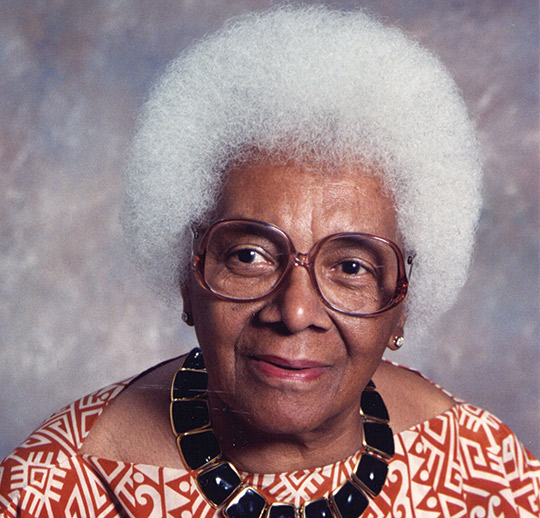Looking Kids in the Eye, Every Day
“Imagine a loud rap at your door at five a.m., and an unabashed woman saying, ‘Wake up, I’m driving you to school today so you stop ditching class!’”
Speaking at a memorial service in 2010, Tiffany Griego Crowe was recalling her former teacher
Betty Fairfax.
A pioneering African American educator and counselor in the Phoenix, Arizona, public schools from the segregated 1950s until her retirement in 2006, Fairfax got involved in the small details of her students’ lives.
“Betty believed in home visits,” says her sister, Jean Fairfax, a longtime civil rights activist. “She would spend nights, weekends, holidays going to see students in troubled areas. Her goal was to make students responsible for the preparation of their own careers, and she expected accountability from them – as well as from school and district officials.”
Fairfax was a celebrated figure in Phoenix, where she began as a science and physical education teacher at all-black Carver High School in 1950 and, after desegregation, became counselor and Dean of Students at Central High School. She earned numerous civic awards, and in 2007 the Phoenix school district named a new high school after her, the first time it had ever so honored one of its employees.
Fairfax was also a philanthropist who offered grants to encourage students to persevere. In 1987 the two Fairfax sisters promised 92 eighth-graders $1,000 for each year of college if they finished high school. They made the same commitment to the 500-strong first class at the Betty H. Fairfax High School.
And at TC, where Betty Fairfax came for additional studies in the 1940s after earning her master’s in education from Western Reserve University in Ohio, the Betty Fairfax Professional Development Fund has, since 2003, made several
hundred small grants, typically around $500 each. The grants help minority students and others cover such things as research costs and dissemination.
Equity in education was a life mission for both sisters, says Jean Fairfax, who spent many years as an organizer with the American Friends Service Committee and the NAACP Legal Defense Fund before moving to Arizona to live with Betty in 1985.
“I was involved in cases to dismantle state segregation of public education,” Jean Fairfax says. “But Betty was a counselor, dealing with specific students. Betty had to look the kids in the eye every day.”
In encouraging students to achieve in the face of inequity, Betty Fairfax could point to her own example. The daughter of a social worker and a Cleveland water department employee,
she excelled in high school in
the 1930s, athletically as well as academically.
At Washburn University in Kansas, she was not allowed to eat in the cafeteria with white students. She finished her undergraduate degree back in Ohio, at Kent State, and started teaching in 1940 in the Cleveland public schools. She moved to Arizona when Phoenix’s black schools recruited for teachers with master’s degrees.
By supporting the professional development of students who work on minority education issues, the Fairfax Fund at TC – initially set up as a challenge grant, with a 3-to-1 match by the college – has been doing its part to foster greater student accountability.
TC doctoral candidate Travis Bristol, who has received two Fairfax grants in the last three years, says he used one grant to cover transportation and supplies for a research project at the jail on Rikers Island, studying strategies teachers use to engage incarcerated youth and help them learn. “That experience stays with me to this day,” Bristol says. “It makes me realize the urgency of my work.”
The second grant covered part of Bristol’s costs to attend and present at the 2011 meeting of the American Educational Research Association in New Orleans, as it did for others. That’s a benefit Jean Fairfax believes is especially important. “When several TC students are able to attend these important meetings and then come back to campus fresh from that experience, it has to make a real impact on the College,” she says.
Through the fund, scores of TC students also have received some of the motivational strength that Betty Fairfax gave to so many students in Arizona over the years – a gift that she distilled in her trademark phrase: “Now make me proud!”
Published Friday, Dec. 7, 2012
